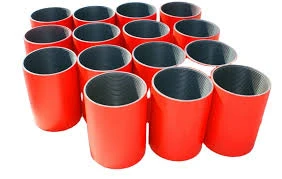- Afrikaans
- Albanian
- Amharic
- Arabic
- Armenian
- Azerbaijani
- Basque
- Belarusian
- Bengali
- Bosnian
- Bulgarian
- Catalan
- Cebuano
- Corsican
- Croatian
- Czech
- Danish
- Dutch
- English
- Esperanto
- Estonian
- Finnish
- French
- Frisian
- Galician
- Georgian
- German
- Greek
- Gujarati
- Haitian Creole
- hausa
- hawaiian
- Hebrew
- Hindi
- Miao
- Hungarian
- Icelandic
- igbo
- Indonesian
- irish
- Italian
- Japanese
- Javanese
- Kannada
- kazakh
- Khmer
- Rwandese
- Korean
- Kurdish
- Kyrgyz
- Lao
- Latin
- Latvian
- Lithuanian
- Luxembourgish
- Macedonian
- Malgashi
- Malay
- Malayalam
- Maltese
- Maori
- Marathi
- Mongolian
- Myanmar
- Nepali
- Norwegian
- Norwegian
- Occitan
- Pashto
- Persian
- Polish
- Portuguese
- Punjabi
- Romanian
- Russian
- Samoan
- Scottish Gaelic
- Serbian
- Sesotho
- Shona
- Sindhi
- Sinhala
- Slovak
- Slovenian
- Somali
- Spanish
- Sundanese
- Swahili
- Swedish
- Tagalog
- Tajik
- Tamil
- Tatar
- Telugu
- Thai
- Turkish
- Turkmen
- Ukrainian
- Urdu
- Uighur
- Uzbek
- Vietnamese
- Welsh
- Bantu
- Yiddish
- Yoruba
- Zulu
seamless tubing coupling
Seamless Tubing Coupling An Overview
In modern engineering and construction, the integrity and functionality of piping systems are paramount. Among the critical components used in such systems, seamless tubing coupling stands out due to its numerous advantages over traditional fittings. Understanding seamless tubing coupling entails exploring its definitions, applications, manufacturing process, and benefits.
What is Seamless Tubing Coupling?
Seamless tubing coupling is a type of connector used to join two pieces of seamless tubing. Unlike welded or threaded couplings, which may introduce weak points, seamless couplings are manufactured from a single piece of material, ensuring durability and reliability. This characteristic makes them ideal for high-pressure applications where safety and performance are critical.
Applications of Seamless Tubing Coupling
Seamless tubing couplings find extensive use across various industries due to their robustness and efficiency. They are commonly utilized in oil and gas transmission, chemical processing, and water supply systems. In the aerospace industry, seamless couplings are employed in hydraulic systems, where the ability to withstand extreme pressures and temperatures is essential. Additionally, the automotive industry also relies on seamless tubing couplings for fuel lines and exhaust systems, where leaks can lead to catastrophic failures.
Manufacturing Process
The manufacturing of seamless tubing coupling involves high-precision techniques to ensure quality and consistency. Typically, the process begins with the selection of high-grade materials such as stainless steel, carbon steel, or alloys designed to meet specific performance criteria. The tubing is then heated to a high temperature, followed by a piercing process to create a hollow tube. Subsequently, the pipe is elongated and formed into a desired diameter using rotary piercing and elongation techniques.
seamless tubing coupling

After the initial formation, the coupling undergoes heat treatment processes to enhance its mechanical properties, followed by cold-working techniques that further refine its dimensions. The final step usually involves surface treatments that prevent corrosion and increase resistance to various environmental factors.
Advantages of Seamless Tubing Coupling
The seamless design of these couplings provides significant benefits. First and foremost, they exhibit superior pressure ratings because the lack of seams minimizes the risk of failure due to stress concentrations. This durability translates into increased safety for users and reduced downtime caused by repairs or replacements.
Moreover, seamless couplings offer excellent corrosion resistance, which is crucial in industries where fluids with corrosive properties are handled. This longevity ensures that maintenance costs remain low, further enhancing their economic appeal.
Additionally, seamless tubing couplings provide a smoother flow path compared to their welded counterparts. This characteristic is particularly advantageous in applications requiring high fluid flow rates, such as oil and gas pipelines, as it reduces turbulence and energy loss.
Conclusion
As industries continue to advance and demand higher standards for piping systems, seamless tubing couplings represent a reliable and efficient solution. Their applications across various sectors underscore their versatility and importance in ensuring system integrity. With benefits such as improved pressure ratings, corrosion resistance, and enhanced flow characteristics, seamless tubing couplings are poised to remain a critical component in modern engineering practices. As we look towards the future, ongoing innovations in material science and manufacturing processes will likely enhance their performance even further, affirming their indispensable role in the infrastructure that supports global industries.
-
Tubing Pup Joints: Essential Components for Oil and Gas OperationsNewsJul.10,2025
-
Pup Joints: Essential Components for Reliable Drilling OperationsNewsJul.10,2025
-
Pipe Couplings: Connecting Your World EfficientlyNewsJul.10,2025
-
Mastering Oilfield Operations with Quality Tubing and CasingNewsJul.10,2025
-
High-Quality Casing Couplings for Every NeedNewsJul.10,2025
-
Boost Your Drilling Efficiency with Premium Crossover Tools & Seating NipplesNewsJul.10,2025







